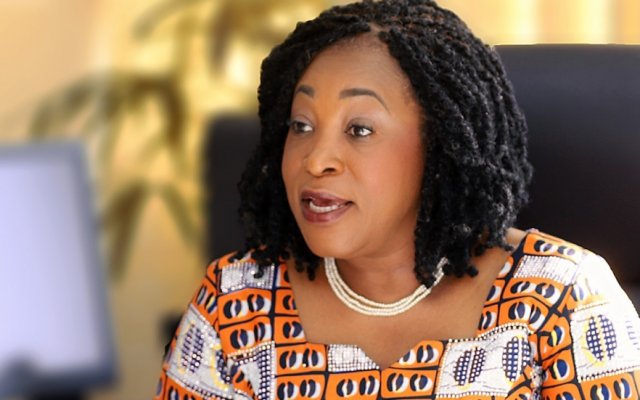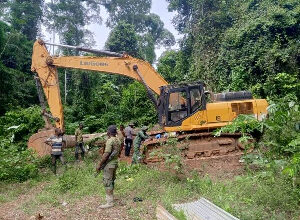The Light Foundation, UNICEF Launches COVID-19 WASH and Lead Poisoning Project

Source: Ebenezer Kofi Amponsah
The Light Foundation, an NGO and UNICEF, have launched COVID-19, WASH and Lead poisoning project with a call on stakeholders to attach utmost importance to their health especially children who are most vulnerable to lead infections.
Lead poisoning occurs when lead builds up in the body, often over months or years, even small amounts of lead can cause serious health problems. Children younger than 6 years are especially vulnerable to lead poisoning, which can severely affect mental and physical development. At very high levels, lead poisoning can be fatal.

Speaking at the launch event in Accra, the Greater Accra Health promotion Manager of the Ghana Health Service, Mrs. Eunice Joan Teah Dzagli said the effects of lead poisoning on the health of people especially children cannot be disputed with the continuous increase in electronic gadgets.
She, therefore, appealed to people to make lead poisoning a major concern amongst stakeholders in order to prevent people from being infected.

On the issue of COVID-19, she said ‘Vaccines trigger the body to generate the antibodies to fight various diseases. Once a lot of people are vaccinated, the spread becomes so low, the symptoms should not in any way deter anybody from taking the vaccine’’.
Madam Helen Asiamah, a representative of the EPA on her part said the illegal sale of acid batteries contain lead which causes damages to the health of children as they unknowingly play with it.

She, therefore, advised parents to make conscious efforts to check the gadgets their wards play in order to prevent them from being exposed to lead.
On COVID-19, she said, the failure of the majority of Ghanaians to get vaccinated could be attributed to cultural and religious beliefs hence the need to continuously sensitise the public.
Madam Asiamah applauded the work of the Light Foundation over the years particularly the advocacy drive on COVID-19 since the outbreak in 2019, adding that ‘EPA is prepared to collaborate with TLF to embark on similar project.

UNICEF representative who spoke on behalf of Madam Charity Nii Kwoi C4D Unit representative UNICEF- GHANA also urged stakeholders within the various communities to support the call for the promotion of good health practices as the world continues to fight COVID-19.
He also asked participants to sensitize the public on the health implications of lead poisoning as they acquire knowledge about it.
‘The vaccines are safe, people should not go with the misinformation out there in the public domain. Let’s ensure we all go for the vaccine. He stressed.

The Deputy Director of Environmental Health and Sanitation, Mr. Joseph Obeng -Poku said that the active involvement of the Light Foundation on health advocacy and other relevant issues of societal concern is highly commendable.
He, therefore, called for the involvement of everyone especially the youths as partners in nation-building.
The CEO of the Light Foundation, Sheikh Ali Abubakar Napari indicated that the project comes on the backdrop of the continuous increase in the number of children who are been exposed and affected by lead poisoning.

He noted ‘At the end of the event, people will be empowered with the knowledge to sensitise others on the effects of lead poisoning on human health and what measures could be taken to minimize it. Lead poisoning in children can cause so much problem including hearing difficulties, headaches, damage to the brain and even high blood pressure, memory and concentration problems in adults among others. It is however preventable if we all work towards educating people about it.’’.
Other topical issues discussed at the launch included some misconceptions about COVID-19, the effectiveness of the vaccine, the sources of lead poisoning and how it can be prevented.

The launch event and sensitization workshop brought together people from Ashaiman, Frafraha, Nungua Zongo, Dompoase, Kokrobite, Agbogbloshie among others.
TLF has operated for over a decade and supports Ghana’s development efforts through peacebuilding initiatives, provision of water and sanitation facilities, skills training. Others include child protection and support, delivery of school infrastructure and charity.





